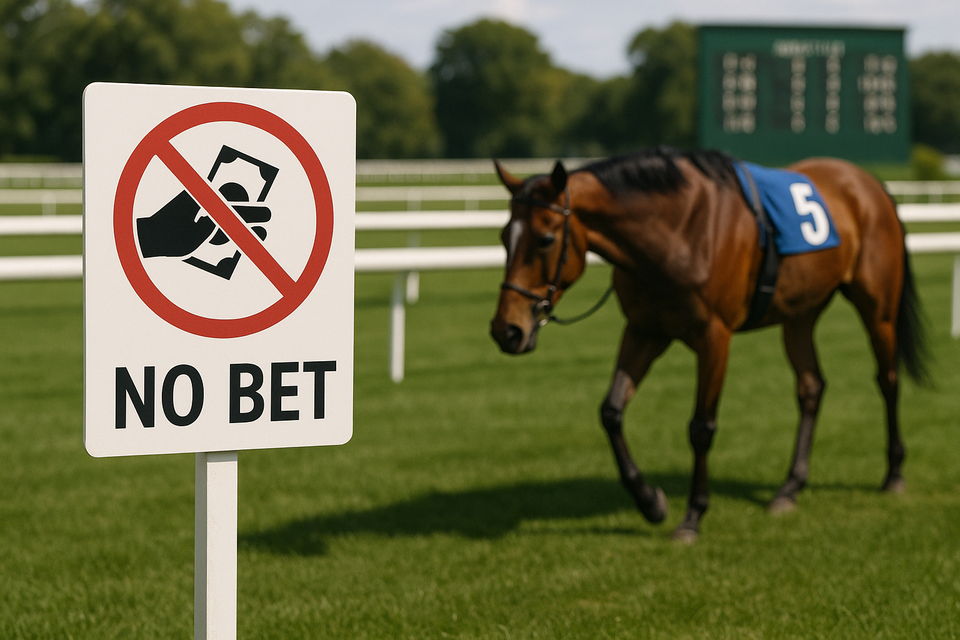Why do Charedim mean when they say “Don’t bet on a horse that’s meant to lose”?

There’s a common expression heard in Charedi circles when discussing politics and modern Zionism: “Don’t bet on a horse that’s meant to lose.”
What does it mean? Why would Torah Jews speak this way about the modern State of Israel—a government in which millions of Jews live and work, and which has created infrastructure, defense, and global influence?
The answer lies in how Charedim view destiny through the lens of Torah—not nationalism, not sentiment, not fear, and not historical guilt.
A Temporary Horse in the Race
To “bet on a horse” is to invest your identity and hope in something—to align your beliefs with it, defend it, and view it as your team. But if that horse is racing toward a finish line that Torah Jews do not believe in, then betting on it means being part of its downfall.
The secular Zionist dream—of building a Jewish state divorced from Torah and mitzvos—is not the destiny of Am Yisrael. It is, in fact, a temporary structure, permitted by Hashem in His hidden wisdom, but destined to fall and be replaced.
"הַמֶּלֶךְ הַמָּשִׁיחַ עָתִיד לַעֲמֹד וּלְהַחֲזִיר מַלְכוּת דָּוִד לִיְשָׁנָה כַּמּוֹ שֶׁהָיְתָה בָּרִאשׁוֹנָה" “The King Moshiach will arise and restore the Kingdom of David to its original sovereignty…” (1)
No matter how powerful or impressive the secular state appears today, it is not the final chapter. And betting on it means tying your identity to something that will, with certainty, be uprooted.
Don’t Confuse the Ride with the Destination
Yes, the State has been used as a vehicle for physical survival for many Jews. Yes, many Jews who live in it are sincere, good-hearted, and show real mesirus nefesh. Charedim love and care for every Jew. But the vehicle and the values are two different things.
You don’t declare a vehicle “holy” just because it delivered you safely.
The State of Israel—as it stands today—is based on democracy, secular law, Western nationalism, and military strength. None of these are Torah ideals. A Torah Jew aligns his values not with man-made systems, but with the unbroken mesorah from Har Sinai.
As the Chazon Ish famously said:
“The State of Israel is a political reality, not a halachic or spiritual one. We must not confuse the functioning of governance with the fulfillment of redemption.” (2)
Aligning With Something Meant to Disappear
If the goal of Jewish life is Torah, mitzvos, the Shechinah, and Malchus Beis Dovid, then aligning yourself with a Zionist system that replaces those ideals is spiritually dangerous.
"כָּל מַלְכוּת שֶׁאֵינָה שֶׁל תּוֹרָה סוֹפָה לִנְפּוֹל" “Any kingdom that is not of Torah is destined to fall.” (3)
This is why Charedim don’t enlist in the army—not because they don’t care, but because they don’t believe the goals of the army align with Torah. It’s why they don’t celebrate secular holidays, sing the national anthem, or place Israeli flags on their homes. They are not “anti-Israel” in the sense of hating the people or land. They are simply not betting on a horse that the Torah tells us cannot reach the finish line.
The Finish Line Is Moshiach
The Charedi world waits for one thing only: the coming of Moshiach.
"אֲנִי מַאֲמִין בֶּאֱמוּנָה שְׁלֵמָה בְּבִיאַת הַמָּשִׁיחַ..." “I believe with perfect faith in the coming of Moshiach…” (4)
When he comes, the current State of Israel will be transformed. Its institutions will be dismantled or reshaped. Its legal system will be replaced with Torah law. Its pride in military might will give way to pride in Torah, tefillah, and kedushah.
"וְהָיָה ה' לְמֶלֶךְ עַל כָּל הָאָרֶץ בַּיּוֹם הַהוּא יִהְיֶה ה' אֶחָד וּשְׁמוֹ אֶחָד" “And Hashem will be King over all the earth; on that day Hashem will be One and His Name will be One.” (5)
A Loving Warning, Not Hatred
This Charedi message is not spoken with hatred or superiority. It is spoken with heartbreak.
“Don’t bet on a horse that’s meant to lose,” means: Don’t tie your spiritual destiny to something that will soon be gone. Don’t invest your soul in nationalism when Torah is eternal.
Charedim have lived through many “horses” in history—movements, empires, ideologies. They all fell. But Torah remained. So why give your heart to something transient?
If the State Knew Our Value…
As was expressed earlier:
“If the State knew the true value it gains from the Charedi community, they would be building more yeshivas and demanding we have more kollels. Instead of building movie theaters, they would build more shuls and mikva’os. Just because they don’t see the value doesn’t mean it’s not there. They would treat Bnei Torah like the princes that we are.” (6)
Conclusion: Root Yourself in the Eternal
The only safe investment is one rooted in eternity.
Nationalism may feel strong now—but Torah is forever. Flags may wave—but it is the voice of Torah that echoes through generations.
So don’t bet on a horse that’s meant to lose. Bet on the one that’s already won—Hashem, His Torah, and His people.
Sources
- Rambam, Hilchos Melachim u'Milchamoseihem 11:1 – "המלך המשיח עתיד לעמוד ולהחזיר מלכות דוד ליושנה"
- Chazon Ish, quoted in Kovetz Igros vol. 3, letter 69 – regarding Zionism as a political, not spiritual, entity
- Bereishis Rabbah 2:4 – "כל מלכות שאינה של תורה סופה ליפול"
- Rambam’s 13 Principles of Faith, Principle 12 – "אני מאמין באמונה שלמה בביאת המשיח"
- Zechariah 14:9 – "והיה ה' למלך על כל הארץ"
- Paraphrased teaching from Charedi rabbanim, including sentiments expressed by Rav Chaim Kanievsky zt”l, Rav Shmuel Wosner zt”l, and Chacham Ovadia Yosef zt”l, who emphasized the national merit Torah learners bring.
